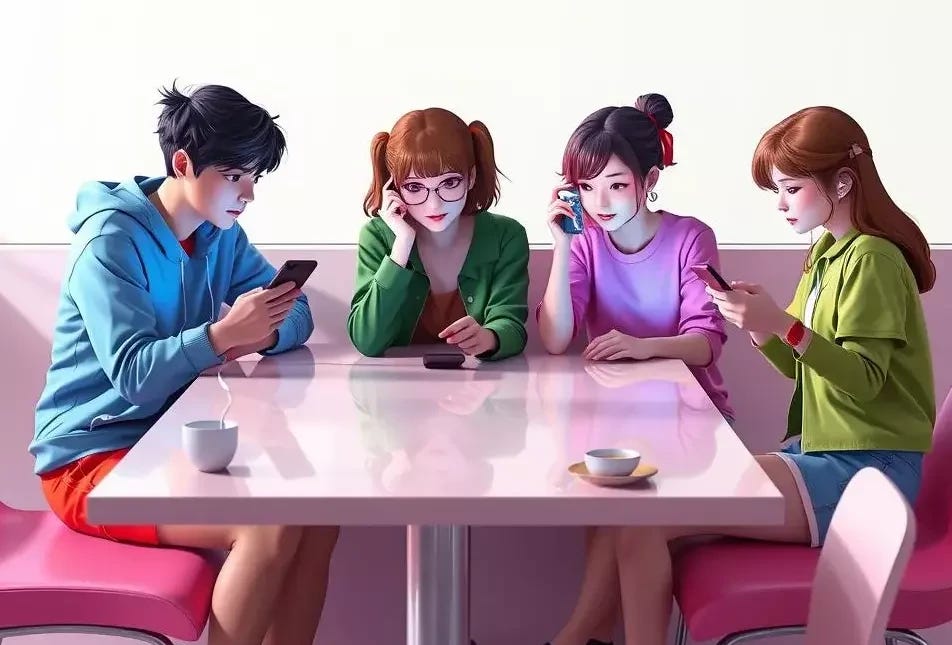If you are looking to read the book Filterworld to get some hints on how to game the social media algorithms, then you will be disappointed. The only way to game the system is to not play at all, the author tries to demonstrate.
Kyle Chayka’s book is not scientific. It’s mostly observational. It is an opinion piece that will either resonate with the reader or not. He is informed by his own experience and interviews that he has conducted with various social media professionals and experts.
Once social media has its hooks into you, you have to assume that your anonymity is lost. Forever. It’s not just your anonymity. Social media creates what in the end can only be considered a customized consumer profile. Whether that profile is truth or not. I may have no interest whatsoever in progressive lenses, having looked it up for someone else, but it now becomes part of my identity. I become someone forever more who cares about progressive lenses. Perhaps I’ve stumbled onto an image that I did not intend to. Too late. My online identity contains that reference too.
The book is about how we are are almost agentless consumers and how the products of social media and streaming services control our choices. The platforms have no interest in helping us curate our own online experiences. Instead, it only makes us the object of their profit motives. Social media holds the hope and promise that the algorithms will curate meaningful content for us. But they don’t and they can’t, Chayka asserts. He aims to break us out of this delusion for our own good.
He makes a statement in Chapter 2 that “…what’s worse for me as a collector and cultural consumer is ultimately better for the platform: I’ll keep subscribing to Spotify because it’s the only way I’ll have access to my music.” I found this a disappointing approach to his favoured content. I do not subscribe to any streaming service because I want complete and utter control of my cultural choices. To that end I rip the CD’s and DVDS I have bought or buy my music on Bandcamp. I store them in my own private storage, accessible-only-to-me library. It’s a little like a messy bookshelf in that things are not necessarily ordered in a way that is easy to find. (As an aside, I have a wonderful desktop application called Everything that is orders of magnitude better than any native search tool for any OS I’ve ever used.) I keep nothing of interest or what I value on any social media platform. If I really want it, I keep a reference to or copy of it. I will never pay for anything on Spotify. But, that’s just me and not everyone has the time nor inclination to invest that energy in their collections.
He also discusses homogeneity and the biases of our global village. I have long noticed since the 1990s, that every city seems, at least on the surface, indeed the same. He points out in the book, that cafés and restaurants all merge into a sameness that feels familiar if not comfortable or like home. In my experience, the sameness is intended to make you feel like you are home. It does give me the security of not being in an alien in an alien land, from small coffee shops to MacDonalds, Wendys, and pizza joints. But is that a good thing? Chayka does not seem to think so.
He observes that the media world overflows with content but little quality. I gave Only Murders in the Building and Ted Lasso their viewing. In the end, I was unsatisfied. For me they are still fast-food entertainment, designed to appeal to as many people as possible for profit. Are they art? I don’t know. But I didn’t like them. It matters little to me that these were considered successful shows and they both got Emmys. I personally did not find them compelling. It harkens back for me the 60s era interpretation of television being Newton N. Minow’s “vast wasteland” of content over quality. I feel the same about most of the Marvel universe franchise of movies and television programs. For a moment Wanda Vision had real appeal for me, but then the series devolved into the overdone CGI explosions and battles, that substitute for depth or real plot resolution. For me, most science fiction media is little more than splashy vapid action/adventure, more similar to a Hallmark romance than a good story. Formula plots may be good for background noise, but that is all.
He considers what affect influencers have and asks us to try to understand the difference between mascots of cereal brands, human Tik Tok personalities shilling products, and virtual AI Instagram avatars selling fashion. Shudu.gram comes to mind as one of these virtual supermodels. Her creator, incidentally, has no lack of controversy surrounding him.
He points out as part of his discussion, that social media has no responsibility to its users whatsoever. He warns us that Meta, Tik Tok, and other media services only care about your attention and its ability to steer you in the direction that it wants and never the other way around. It can be an exhausting exercise to try to curate your own social media experience and, he suggests, ultimately impossible.
Over and over in the book, he suggests that people are hungry for curated content. He believes or perhaps hopes that we will reclaim that urge to find or allow professional curators to find content for us that is truly interesting, original, or unique for us, sparking our love of creativity and artistic appreciation once more.
(note: cross-posted to Goodreads)




